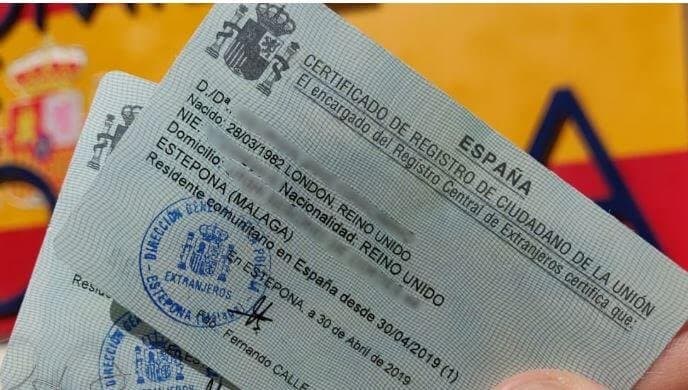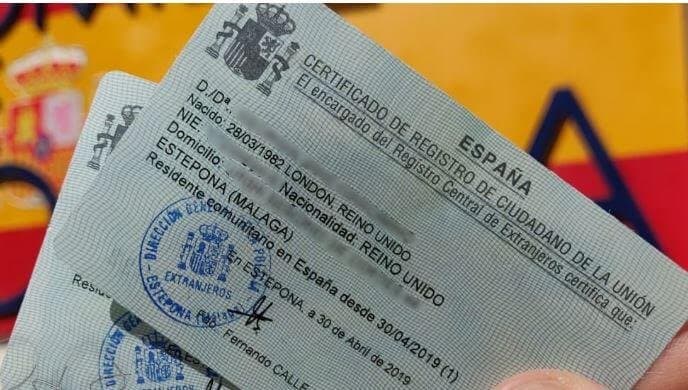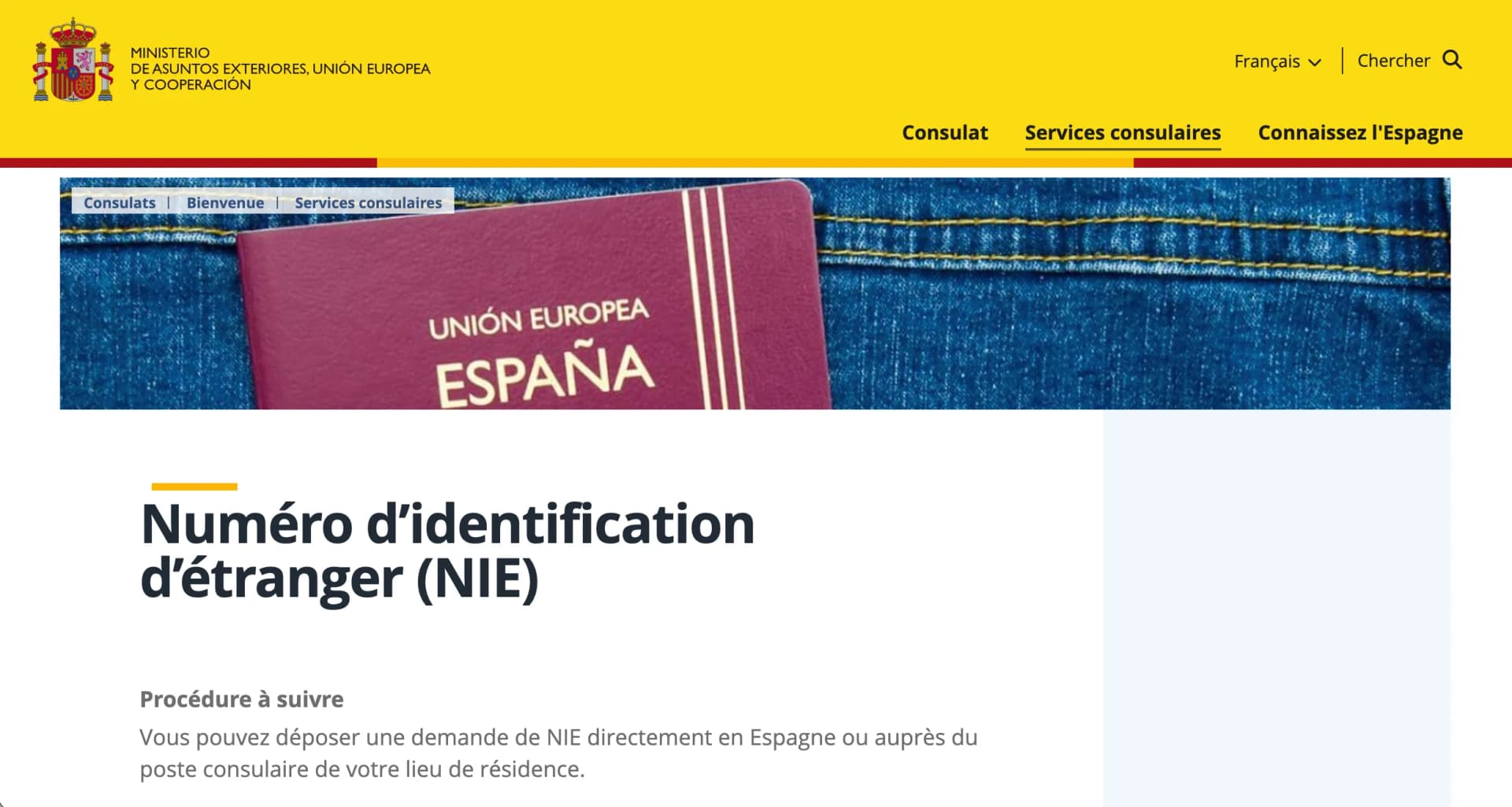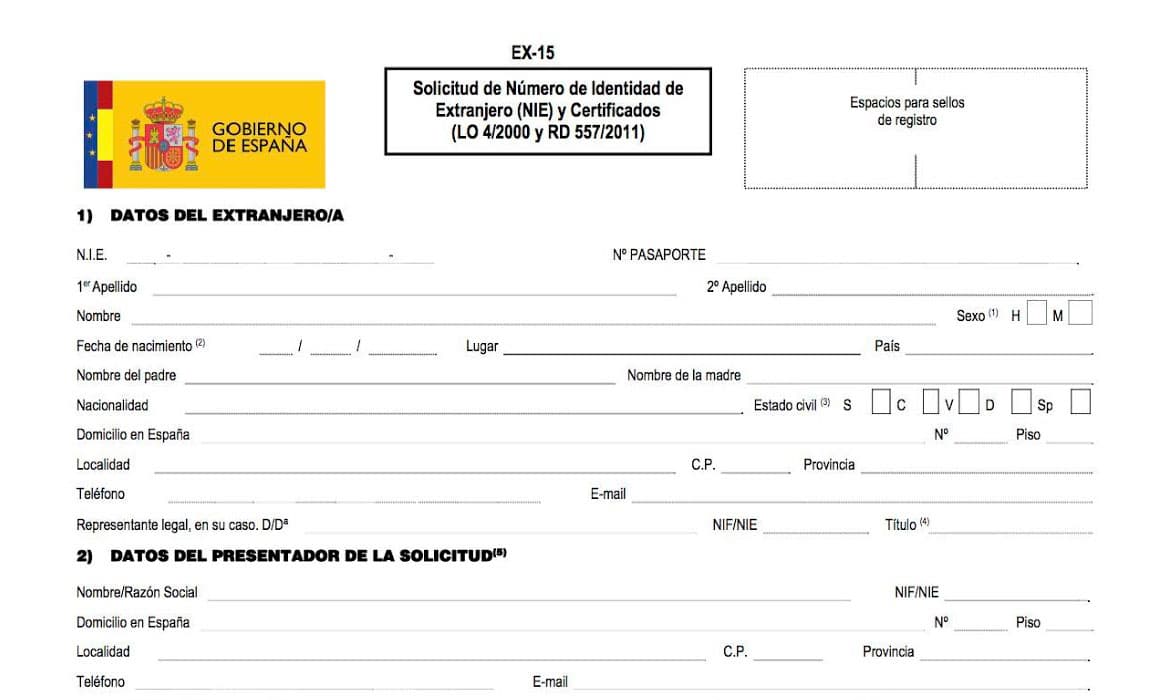Everything You Need to Know About the NIE in Spain: A Practical Guide
Discover the process of obtaining a NIE in Spain with this practical guide. Follow our essential steps to facilitate your procedures. Read the article!

International Mobility Expert

NIE Number in Spain: What It Is and Why You Need It
Most foreigners planning to move to or invest in Spain will hear about the NIE. This Número de Identidad de Extranjero (Foreigner Identification Number) is absolutely essential for many procedures in the country. The NIE is a foreigner identification number assigned by the Spanish administration, used for all administrative procedures, such as civil registration, buying property, or opening a bank account. Without a NIE, it is impossible to buy real estate, work in Spain, or even get a social security number.
This article explains in detail what the NIE is, what it is used for, and how to obtain it.
What is the NIE ?

The NIE is the acronym for Número de Identidad de Extranjero, which means the identification number assigned to foreigners in Spain. It is a unique and exclusive personal number, assigned by the General Directorate of the Police to each foreigner in relation to Spain (for administrative, economic, professional, or social reasons). This number appears on all official documents for foreigners and must be included on most administrative forms you will fill out in Spain.
The NIE has a standard format: an initial letter (X, Y, or Z), followed by seven digits, and then an alphabetic control character at the end – for example X9956748M. This final character allows for the verification and identification of the foreign person. When filling out official forms, it is imperative to write the NIE number in capital letters to ensure compliance and avoid any reading errors.
This NIE number is assigned once and for all: it will remain valid for life for all your activities in Spain. Note that the NIE is not an identity document in itself: you will always need to present a valid identity document, such as your passport or your national identity card in addition. The NIE is required for any European citizen wishing to carry out administrative procedures in Spain.
What is the NIE used for in Spain ?
The NIE is essential for:
- Buying or selling real estate
- Opening a bank account
- Signing an employment contract and registering for social security
- Subscribing to services (telephone, internet, water…)
- All procedures with the Spanish administrations
In short, the NIE is necessary for almost all administrative or economic procedures in Spain, whether for investing, working, housing, or managing daily affairs. It is also essential for procedures related to residency in Spain, especially the registration in the central register of foreigners, which is a key step to formalize one's residency in the country. Without this number, many of these actions would simply be impossible.
Besoin d'aide pour obtenir votre NIE blanc en Espagne ?
Notre équipe d'experts vous accompagne pour obtenir votre NIE blanc (non-résident) sans vous déplacer.
Plus de 300 NIE blancs obtenus
"Julia est super efficace : NIE obtenu en quelques jours."
Marie
Espagne

NIE vs other numbers (DNI, NIF…)
In Spain, different types of identification numbers coexist. The DNI (Documento Nacional de Identidad) is the national identity card for Spanish citizens, while the NIE is specifically the identification number assigned to foreign nationals. Furthermore, the NIF (Número de Identificación Fiscal) refers to the tax identification number used for tax procedures (like tax returns). For individuals, the NIF corresponds to either the DNI (for Spaniards) or the NIE (for foreigners). Note that the term CIF formerly designated the tax identification number for companies, until it was replaced by the NIF in 2008.
In summary, the DNI is the equivalent of an identity card for a Spaniard, while your foreigner identification number NIE, in addition to identifying a foreigner, is used in all administrative and tax procedures for non-Spaniards and will serve as a NIF with the tax authorities (just as the DNI serves as a NIF for a Spaniard).
How do you get a NIE ?

The procedure to obtain a NIE depends on your geographical location. If you are already in Spain, you will have to apply at a National Police station (usually through the foreigners' offices, Oficinas de Extranjería) competent in the province of your residence. The application can therefore be made at a police station in Spain or, if you are abroad, at a Spanish consulate in your country of residence. It is necessary to make an appointment in advance via the official online system (cita previa platform on the Ministry of the Interior's website) – a step that can be tricky given the influx of applications and the difficulty in finding available slots.
If you are not in Spain, you will have to go through the consular services: the NIE application is then made at the Spanish consulate in your country of residence. It is also possible to appoint a representative with a notarized power of attorney, but your presence or that of your representative is mandatory when submitting the application.
Documents to provide
To compile your NIE application file, you will need to gather several supporting documents. Among the documents to be provided are:
- The official form EX-15 duly completed and signed.
- A copy of the main pages of your passport (accompanied by the original).
- A document attesting to the reason for your request (sales agreement, employment contract...).
- The receipt for payment of the tax (form Modelo 790 – código 012).
The time to obtain the NIE can vary from a few days to several weeks. On average, a consulate issues the NIE in about 2 weeks, while an application made directly in Spain can take several weeks (sometimes 1 to 2 months).
Besoin d'aide pour obtenir votre NIE blanc en Espagne ?
Notre équipe d'experts vous accompagne pour obtenir votre NIE blanc (non-résident) sans vous déplacer.
Plus de 300 NIE blancs obtenus
"Julia est super efficace : NIE obtenu en quelques jours."
Marie
Espagne
Forms to fill out

The NIE application in Spain involves filling out two main forms: the EX-15 form and the form 790. The EX-15 form is for the identification number application and must be carefully completed with your personal information and the reason for the request. You can find it on the websites of consulates or police prefectures.
The 790 form (código 012) is used to pay the administrative tax. You can fill it out and download it from the Spanish National Police website. The payment receipt must be attached to your file.
The NIE and real estate in Spain
The NIE is absolutely essential for any real estate transaction in Spain. Whether you want to buy or rent a property, this number will always be requested. To learn more about settling in Spain, check out our article on the best neighborhoods to live in Madrid.
Practical tips for the NIE
Hiliv Tip
The appointment platform (cita previa) is often saturated. New time slots are generally opened at the beginning of the week (often on Monday morning). Log in at that time and refresh the page to maximize your chances.
- Anticipate the request: Start the procedures as soon as possible, as obtaining the NIE can take several weeks.
- Consider small towns: In large cities, getting a slot is difficult. Try a police station in a smaller town in the same region.
- Prepare a complete file: An incomplete file will lead to delays. Check that you have all the originals, copies, and correctly filled-out forms.
- Get help: If the procedure seems complex, professionals like Hiliv can handle the procedures for you. This is an option to consider to save time and avoid administrative stress.
By following these tips, you will put all the chances on your side to obtain your NIE number under the best conditions. This precious key will then open the door to administrative and economic life in Spain.
Besoin d'aide pour obtenir votre NIE blanc en Espagne ?
Notre équipe d'experts vous accompagne pour obtenir votre NIE blanc (non-résident) sans vous déplacer.
Plus de 300 NIE blancs obtenus
"Julia est super efficace : NIE obtenu en quelques jours."
Marie
Espagne
Frequently Asked Questions (FAQ)
Does the NIE number have an expiration date?
No, the NIE number (Número de Identidad de Extranjero) is assigned for life and never changes. However, the physical document that certifies it (the green paper or the TIE card) may have a validity date and require renewal.
Can I work in Spain with only a NIE?
The NIE is a tax and administrative identification number, but it is not a work permit in itself. To work, EU citizens need the NIE and a Social Security registration. Non-EU citizens must obtain a work visa or a residence permit that includes a work authorization.
What is the difference between the NIE, the TIE, and the EU certificate?
The NIE is your identification number. The Certificado de Registro de Ciudadano de la UE (often called the green NIE) is a paper document that certifies the registration of EU citizens as residents. The TIE (Tarjeta de Identidad de Extranjero) is a physical card with a photo for non-EU residents, which contains their NIE.
What should I do if I lose my NIE document?
In case of loss or theft, you must file a police report (denuncia) and then request a duplicate from a police station or a foreigner's office (Oficina de Extranjería), presenting the loss report and other required documents.

